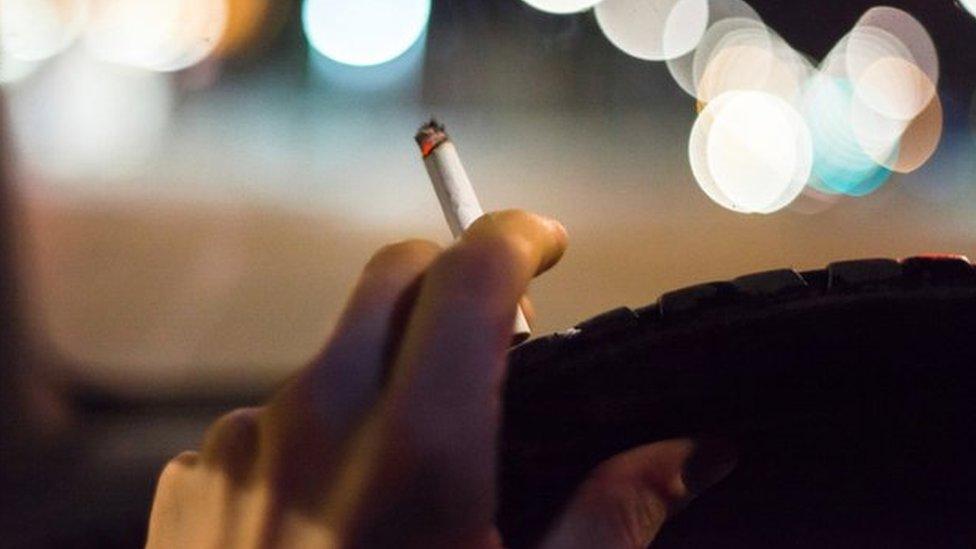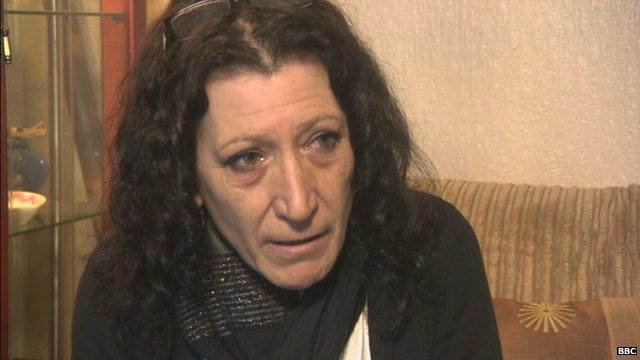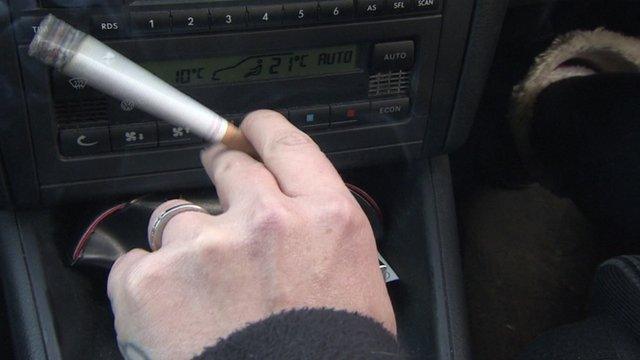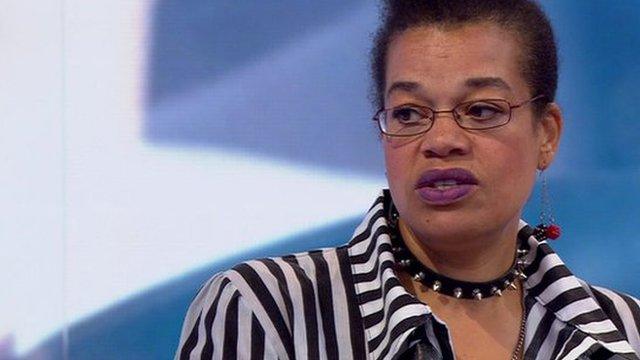Smoking in cars with children: Police 'cannot' enforce ban
- Published

Police in England and Wales are "unable" to enforce a new law banning smoking in cars carrying children because there are no tickets which they can issue, the BBC understands.
No fines or court summonses were issued in the first three months of the law, a BBC Radio 5 live freedom of information (FOI) request suggests.
The Police Federation said there was no "physical ticket" to enforce the law.
The government said it was working with police and councils on arrangements.
It became illegal in England and Wales to smoke in a vehicle with children on board last October, with drivers and passengers facing a penalty fine of £50.
Unclear legislation
But 39 out of 44 police forces who responded to the BBC's FOI request said no fines or court summons, and only six warnings, had been issued.
Police say they’re "unable" to enforce a new law banning smoking in cars
Four of the warnings were from Dyfed Powys Police, and two were from London's Metropolitan Police.
The Chartered Institute for Environmental Health, which worked with the government on the law, said police officers could stop vehicles but not issue fines - and local authority enforcement officers could issue fines, but not stop vehicles.
"The prosecuting agent for these offences is the local authority - we've become the conduit in between stopping the driver and the local authority," said Police Federation road policing lead Jayne Willetts.

What is the smoking in cars ban?
The law, which was introduced in October, prohibits smoking in a vehicle carrying anyone under the age of 18.
Smokers are still liable if the windows are down or sunroof open, but the law will not apply to people who are driving in a convertible which has the roof down. Nor does it apply to e-cigarettes.
Drivers and passengers who break the law could face a penalty fine of £50.
The Scottish Parliament has voted to introduce a similar ban, and Northern Ireland is also considering a change in its law.

Greater Manchester Police said that even if it were able to issue fines, it was unclear to whom they should be paid, saying "neither the police or the courts can take the money - it would have to be the issuing authority (the local authorities)".
"As it stands an officer would be unable to summons for the said offence until all is agreed and a devised system is in place."
Attitude change
Cleveland Police added that none of the documentation, such as the tickets that would allow officers to issue fines, had yet been sent to officers.
Simon Clark, director of the smokers' group Forest, said the ban's outcome was "entirely predictable" because police officers had "far better things to do than pull over drivers on suspicion they may be smoking with a child in the car".
Most smokers knew it was inconsiderate to smoke in a car carrying children, he said, adding: "This is probably one of the most futile and irrelevant laws ever introduced.
"The government did it to denormalise smoking but parents who smoke don't need politicians telling them how to behave."
The Department of Health said it was working with police and local authorities on arrangements for the police to use "existing traffic offender report forms to pass information to local authorities to collect fines".
"In changing the law we always said the measure of success would be in changes in attitude and behaviour, not number of enforcement actions," a spokesperson added.
The ban was hailed as "a landmark in protecting children from secondhand smoke" by the government's chief medical officer, Professor Dame Sally Davies, when it was introduced.
- Published1 October 2015

- Published10 February 2014

- Published17 December 2014

- Published1 October 2015
